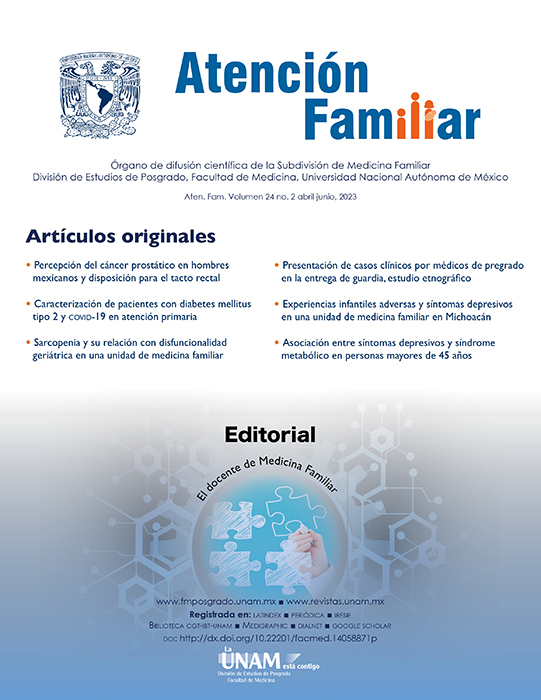Experiencias infantiles adversas y síntomas depresivos en una unidad de medicina familiar en Michoacán
Contenido principal del artículo
Resumen
Objetivo: determinar la frecuencia de experiencias infantiles adversas y su relación con la presencia de síntomas depresivos en una unidad de medicina familiar en Michoacán. Métodos: se realizó un estudio transversal y analítico en 139 participantes adscritos a la Unidad de Medicina Familiar No. 80 del Instituto Mexicano del Seguro Social. Se aplicó el cuestionario internacional de experiencias infantiles adversas (ace-iq) y el inventario de depresión Beck ii. Se utilizó estadística descriptiva y la prueba de χ2. Se realizó regresión logística por pasos para confirmar asociaciones. Resultados: 88.5% de la muestra reportó al menos una experiencia infantil adversa, mientras que 59% reportó tres o más. La frecuencia de síntomas depresivos fue de 29.5% y 97.6% de los participantes con síntomas depresivos reportaron al menos una experiencia infantil adversa. El análisis de regresión logística mostró que el abuso físico, el abuso emocional y la situación laboral predicen para la presencia de síntomas depresivos. Conclusión: la frecuencia de experiencias infantiles adversas es más alta que la reportada en otros estudios y se asocia con la presencia de síntomas depresivos en el adulto.
Descargas
Detalles del artículo
Citas en Dimensions Service

Esta obra está bajo una licencia internacional Creative Commons Atribución-NoComercial-SinDerivadas 4.0.
